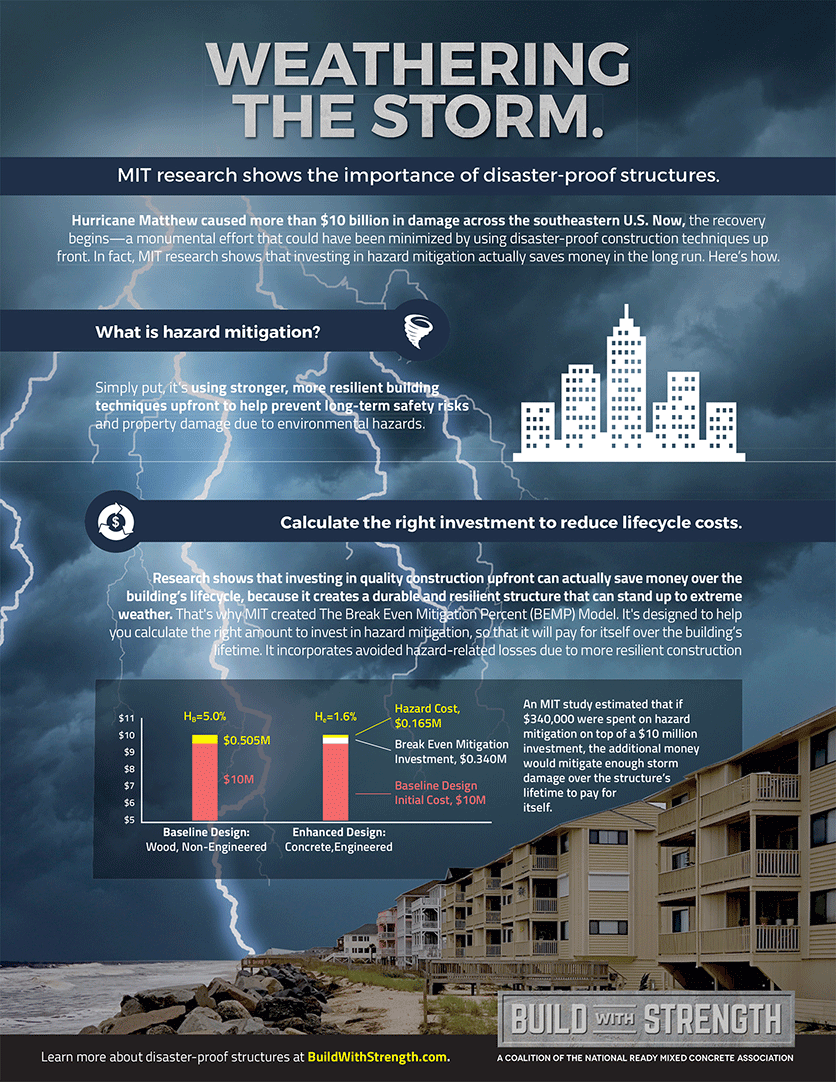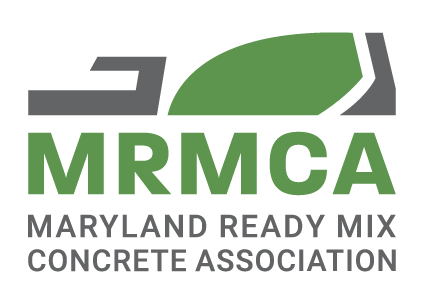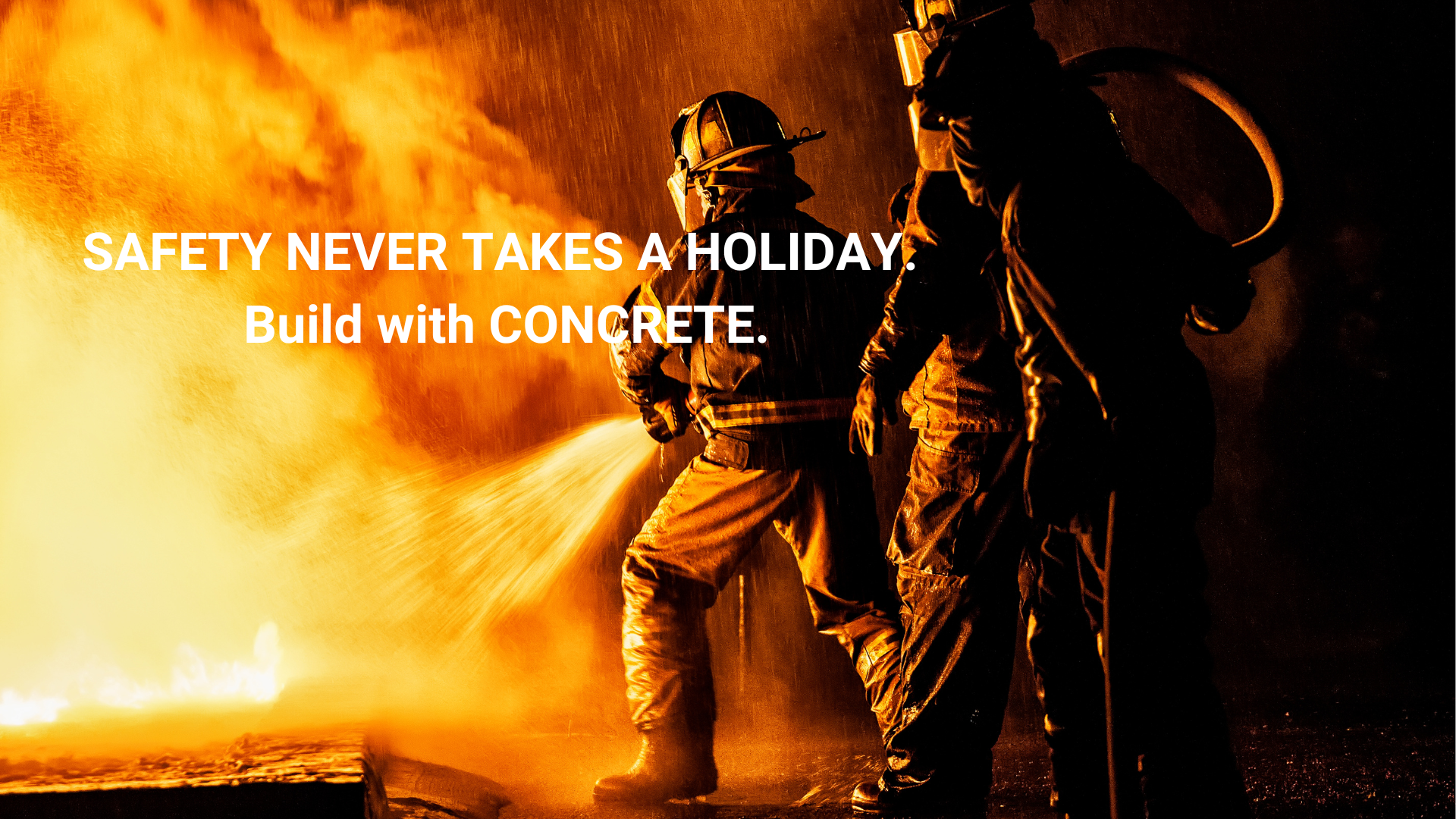
Concrete is resistant to burns, rust, and rot. It can also stand up to vibrations, water, wind, fire, and even earthquakes. Not only does this reduce costs, but it keeps people safe.
Concrete is an inert building material. Since it doesn’t mildew or feed rot, concrete makes an excellent choice if your goal is to avoid construction materials that can trigger occupants’ allergies. In addition, concrete helps to prevent airborne allergens such as pollen and dust from entering homes and commercial buildings.
Concrete has proven to be the most durable building material when it comes to natural disasters and extreme weather events.
In terms of fire resistance properties, choosing concrete for a construction project means increasing the safety and protection for the home or building’s occupants. Occupants will benefit from this choice of building material, for obvious reasons, but the owner benefits as well, since insurance costs may be lower if there is less risk of fire in a concrete building.
Concrete doesn’t burn and may help to contain a blaze by stopping a fire from spreading to another floor. It acts as a shield during a fire by providing a safe route to safety for the building’s occupants, along with protection for firefighters as well. It can resist extreme levels of flames and heat, which makes it an excellent choice for the walls and ceiling of a storage room or facility for products or items with a high fiber content.
Concrete doesn’t produce any smoke or gasses, which may be toxic to occupants as well as to firefighting personnel. It also doesn’t drip any molten particles, which can be responsible for a fire spreading.
Its strength makes fighting fires easier and lowers the risk of a floor or building collapse. And, after a fire has occurred, concrete is easy to repair - it will not be affected by the water used by firefighters to put it out.
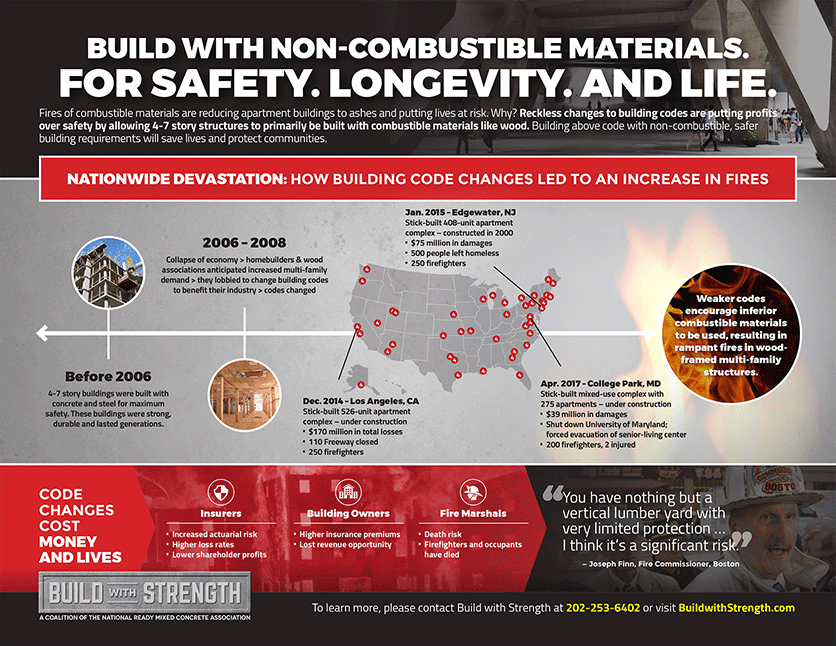
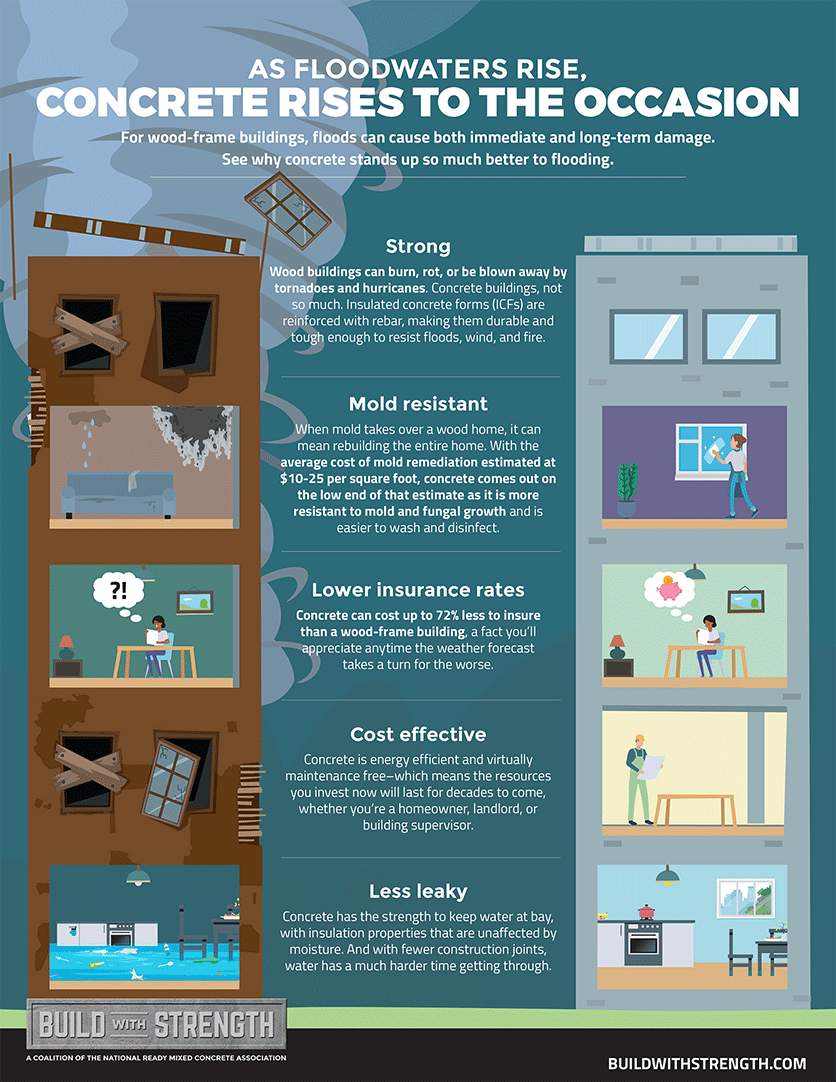
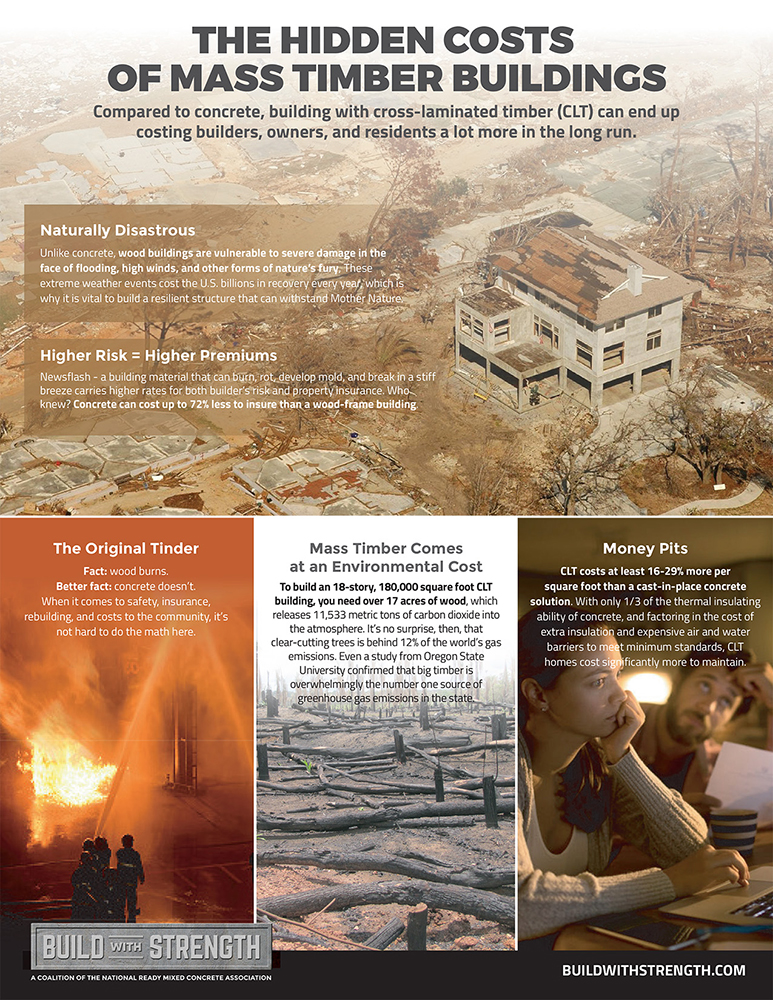
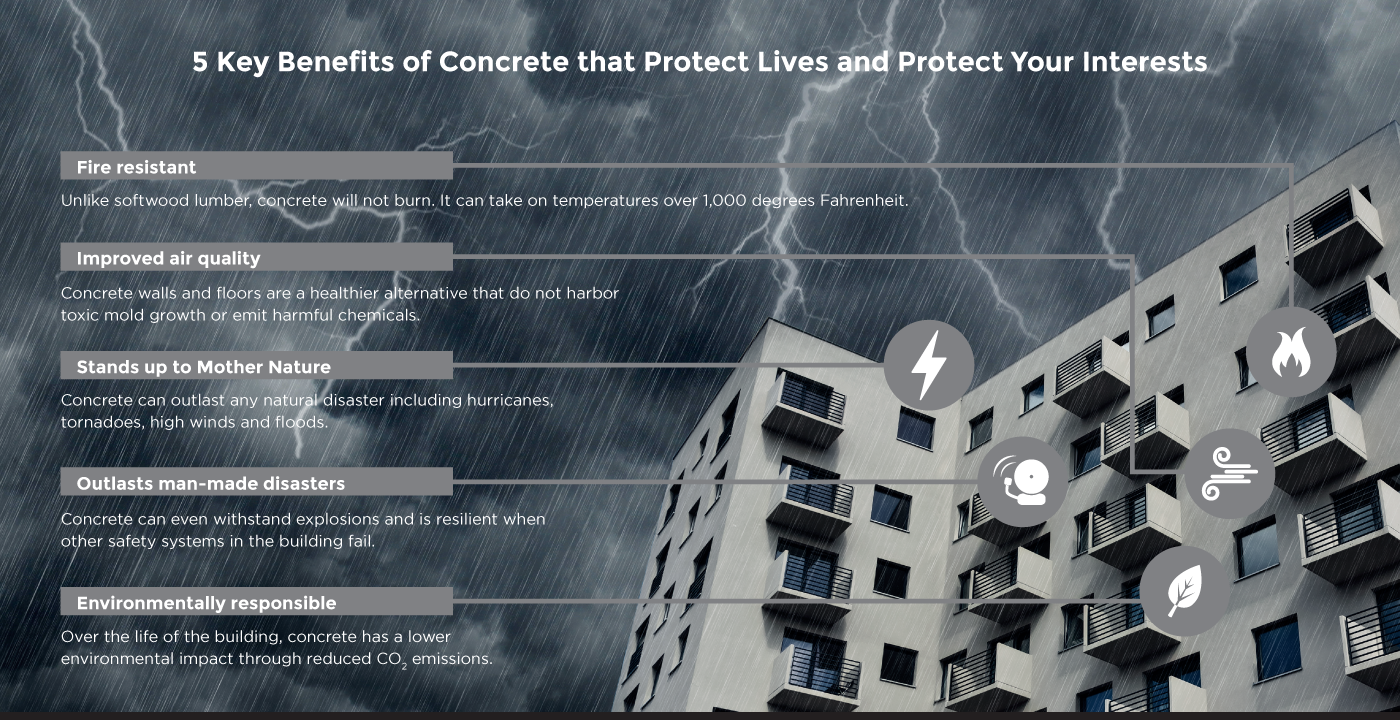
HAZARD MITIGATION
What exactly is hazard mitigation – and how do you know how much to invest so that it pays off in the long run? Take a closer look at the MIT research behind this building technique, and see how it can work in the real world.
